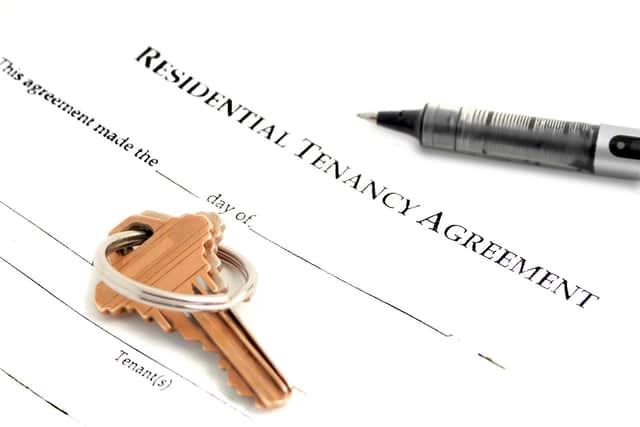Tax issues for private landlords
The capital gains tax payable when the landlord sells a residential property was increased to eight per cent higher. There is now also the 60-day capital gains tax (CGT) pay and file regime for landlords. When an individual landlord sells a house or flat that they have been renting out and makes a chargeable capital gain on which capital gains tax is payable, the gain has to be reported to HMRC, and the CGT must be paid within 60 days from the date of completion of sale of the relevant property.
This is a considerable burden for landlords who sell rented residential property. The gain will have to be calculated, reported to HMRC on the “Capital Gains Tax on UK property return” form and the CGT duly paid within 60 days of completion.
Advertisement
Hide AdAdvertisement
Hide AdA stamp duty land tax, aka SDLT, surcharge of three per cent was also introduced on the purchase of such a property. When an individual acquires their home, unless they are a first-time buyer, the current rates of stamp duty chargeable on their purchase price are as follows: Property cost SDLT rates are up to £250,000 zero, £250,001 to £925,000 five per cent, £925,001 to £1.5m 10 per cent, over £1.5m 12 per cent.


However, if they are a landlord, acquiring a residential property to let out, they will pay a three per cent surcharge on each band of SDLT. Higher rate income tax relief for buy to let loan interest has also been removed and landlords now only receive a basic rate tax credit relating to the buy to let loan interest that they have paid within the tax year to reduce their income tax liability.
Landlords can only claim tax relief when they replace furniture, furnishings, and kitchenware, provided for the tenant’s use in the property. This tax relief covers the replacement costs of items such as chairs, beds, wardrobes, sofas, other furniture, TVs, white goods, curtains, and carpets.
A deduction is only available for the replacement cost, not the cost of the initial purchase and a new item will be treated as an improvement when it is not the same as the old item, its functionality has changed or you upgrade the quality of the item.
Advertisement
Hide AdAdvertisement
Hide AdHowever, if the replacement is a reasonable modern equivalent, then the full cost of the replacement will be allowable. So, if a landlord replaces a sofa with a sofabed, they can only claim a deduction for the cost of buying an item the same as the original. For example, if replacement new sofa costs £500 but a sofabed costs £650,they can only claim relief for £500.
If a landlord sells a rental property, some planning could be done in this situation. You could ensure that the ageing items are left behind so that the new landlord can replace them.
In conclusion, the increased tax burden, difficulty to evict tenants and possible future eco upgrades have all contributed to make these very difficult times for private landlords who should ensure that they meet their reporting obligations and correctly claim the tax reliefs available to them.
If you would like further information, please get in touch with a member of our tax team: T: 01904 655202 or email [email protected] or [email protected]